| City/Town: • Chattahoochee |
| Location Class: • Recreational |
| Built: • 1978 | Abandoned: • 1990 |
| Status: • Burned Down |
| Photojournalist: • David Bulit |
Table of Contents
Short History of Jai Alai
Big Bend Jai Alai is a relic of what is now considered a rather obscure sport, was once the fastest spectator sport in the world. Jai alai started in the Basque region of Spain, and it is similar to racquetball. But instead of racquets, players have curved baskets strapped to their hands which are called ‘cesta.’ The goal is to catch the rock-hard ball called a ‘pelota’ in the cesta, and then throw it back at the front wall in one smooth motion. The added leverage provided by the cesta allows the players to throw the ball at such high rates of speed, usually hitting speeds up to 150mph. If the opponents cannot catch and return the ball, and the ball stays in bounds, the thrower earns a point.
Jai alai was once regarded as the fastest-growing spectator sport in the 20th century and was at the peak of its popularity in the 1970s. To make it easy to understand why a sport you’ve probably never heard of was so popular, especially here in Florida, the only sports teams we really had here in Florida were the Miami Dolphins and the Tampa Bay Buccaneers. Florida didn’t get an NBA team until 1988 and a baseball or hockey team until 1993.
Arenas for jai alai are called ‘frontons,’ and are designed with three walls with the fourth wall for spectators, which is usually just a net to keep viewers out of harm’s way. The first jai alai fronton in the Western Hemisphere opened in 1901 in Cuba, with the first fronton in the United States opening not long after in St. Louis in 1904 during the World’s Fair. Miami Jai-Alai was Florida’s first fronton opening in 1924 and is still regarded as the largest in the world, though it won’t be the state’s last fronton.

Big Bend Jai Alai
Big Bend Jai Alai opened near Quincy in 1978. Shortly before its opening, co-owner Stephen Calder died from a heart attack. His estate was valued at $22 million and was disputed by his heirs, relatives, business associates, and others, in multiple court cases for more than 13 years. As an attorney involved in one dispute was quoted as, “There are all sorts of wild allegations on the record: suitcases of gems, hidden gold, chicanery, injustice. Nothing was ever proven.“
What marked the end for jai alai was a player strike in 1988 due to contract disputes. During this time, frontons hired inferior part-timers and there was an exodus of patrons due to rumors of fixed games. It also didn’t help that there was an increase in available gambling options, such as the Florida Lottery in 1988. By the time the strike ended, jai alai was just another niche sport.
Big Bend Jai Alai’s last season took place in 1990 after the state gave permission to begin the conversion of the facility into a greyhound racing track. The plan eventually fell through. Many more plans would follow that would also fail, most recently converting the building into a casino. For over 25 years, Big Bend Jai Alai has sat vacant and it will probably stay that way for many years to come.





















Leave a reply